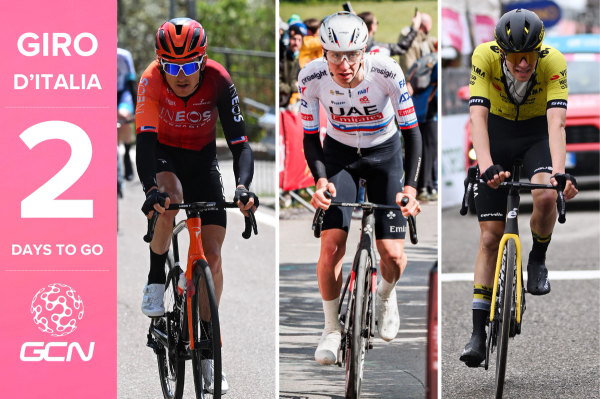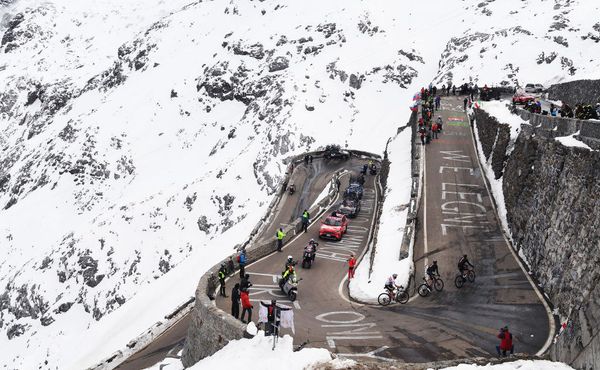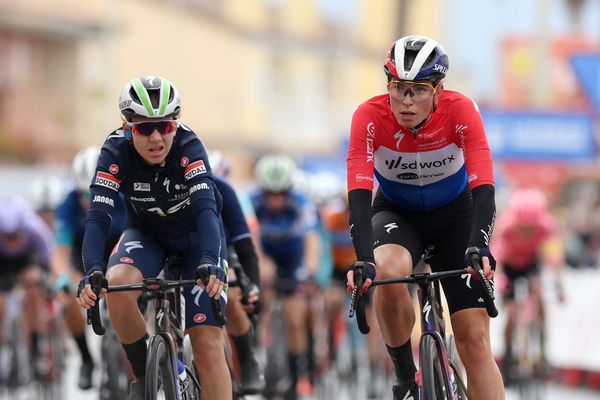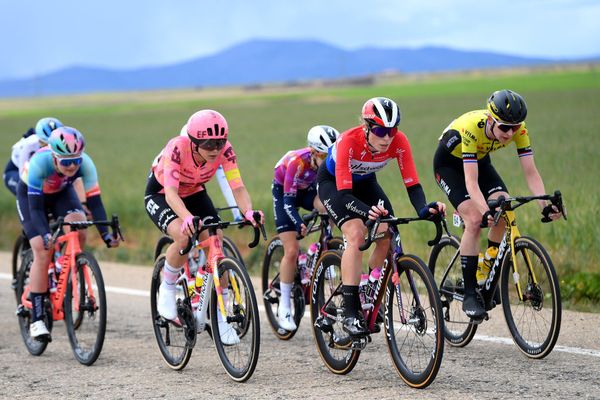A beginner's guide to Liège-Bastogne-Liège
This long, hilly Monument caps off the men's and women's Spring Classics
GCN
The GCN team
© Getty Images
The men's peloton takes on one of the many climbs that characterise Liège-Bastogne-Liège
The third and final Ardennes Classic, Liège-Bastogne-Liège, takes place this weekend, with the men’s and women’s races running on Sunday, 21 April. Coming after Amstel Gold Race and Flèche Wallonne, Liège-Bastogne-Liège is the hardest and longest of the Ardennes Classics, and also the most important as a Monument.
Nicknamed ‘La Doyenne’ – meaning ‘the old woman’ – Liège is the oldest Monument, with the men’s race dating back to 1892, whilst a women’s version was added in 2017. Both races are among the most prestigious on the calendar, with winners including Bernard Hinault, Eddy Merckx and Tadej Pogačar on the men’s side, and Anna van der Breggen, Annemiek van Vleuten and Demi Vollering in the women’s race.
More so than the cobbled Classics, Liège is a race that suits the climbers and GC riders of the peloton, with riders who are Grand Tour contenders – Remco Evenepoel or Primož Roglič for example – able to win here when they perhaps wouldn’t earlier in the spring.
Many riders regard Liège-Bastogne-Liège as one of most arduous one-day races on the calendar due to its length and demanding, hilly course. It may not possess the cobbles of Flanders or Roubaix, but it does feature plenty of leg-breaking climbs, allowing riders zero respite as they thunder towards the finish in Liège.
Four-time winner of the men’s race, Italian Moreno Argentin, summed up exactly what it takes to win this race: “You need to be strong and at the same time clever and calculating – in this sense it’s a complete test of a cyclist’s ability.”
Read more: Spring Classics 2024: Essential guide to the races and riders
Liège-Bastogne-Liège winners and history
This race has always favoured all-rounders and those riders that can perform well in both stage races and one-day races. Riders like Eddy Merckx, Bernard Hinault and Jacques Anquetil are all testament to this on the men’s side. Each has won this race and several other big Monuments, as well as multiple Grand Tours, over the course of their long and illustrious careers.
Alejandro Valverde, Andy Schleck, Primož Roglič and Tadej Pogačar are four more riders that have won this race, and a Grand Tour title, since the turn of the millennium. In 2021, Pogačar won the Monument before going on to take his second Tour de France three months later. In doing so, he became the first rider since Merckx in 1972 to win the two races in the same season. Remco Evenepoel also took Liège in the same year that he won the Vuelta a España.
Read more: Remco Evenepoel out of the Ardennes Classics following Itzulia Basque Country crash
The women’s winners list isn’t nearly as long as the men’s, but already we’ve seen several of the world’s best all-rounders – like Anna van der Breggen, Annemiek van Vleuten and Lizzie Deignan – take a well-earned win. Van der Breggen and Van Vleuten both won here before going on to win the Giro d’Italia Donne later in the season, whilst Demi Vollering won in 2023 and went on to take victory at the Tour de France Femmes avec Zwift too.
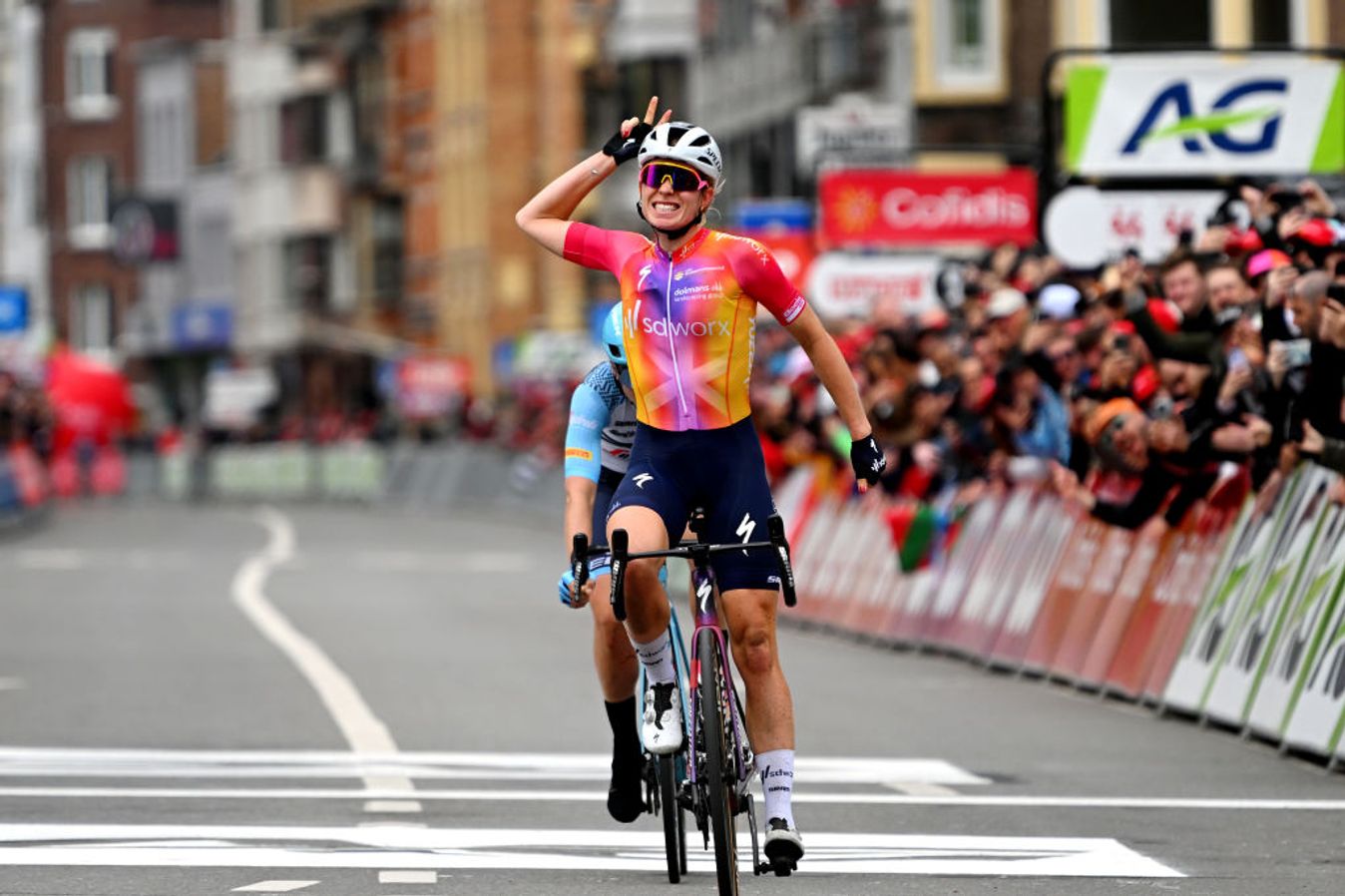
© Getty Images
Demi Vollering took her second Liège-Bastogne-Liège in 2023
The home nation, Belgium, dominates the list of winners in the men’s race, with 61 wins from 109 editions. Their most successful rider of all time, and perhaps the most successful rider of all time, Merckx, holds the record for the most victories in this race with five. The Belgians struggled for wins in the 2000s, with Philippe Gilbert’s 2011 title the only exception, but Remco Evenepoel turned that tide with his back-to-back wins in 2022 and 2023.
In the women’s race their best finish is a 15th place courtesy of Julie van de Velde in the 2019 edition. On the women’s side it’s the Dutch who dominate, no surprises there. Aside from Deignan’s victory in 2020, every other edition has gone the way of a Dutch rider: Van der Breggen in 2017 and 2018, Van Vleuten in 2019 and 2022, and Vollering in 2021 and 2023.
Read more: Mathieu van der Poel returns to Spain to prepare for Liège-Bastogne-Liège
Liège-Bastogne-Liège route
Find the full men's and women's routes for 2024 on our dedicated race pages.
The route of Liège-Bastogne-Liège has always been characterised by its short, sharp climbs - the most iconic being the Côte de La Redoute, a 2km-long wall with slopes of over 20%. There’s also the energy-sapping Col du Rosier, the longest climb on the route at 4.4km, and the super-steep Côte de Saint-Nicolas that comes just a few kilometres before the iconic uphill drag into Ans. These climbs have punctuated the business end of this race since the mid-90s and have largely dictated the winner each time, but the route was tweaked a few years ago.
In 2019, the organisers decided to switch up the race by moving the finish back into the centre of Liège and removing the Côte de Saint-Nicolas and final uphill drag into Ans from the route. The Côte de la Roche-aux-Faucons is now the final climb, and with its summit falling just a few kilometres before the finish, it entices a lot more attacks, ultimately making for a more exciting race, with all sorts of outcomes possible in the finale.
Liège-Bastogne-Liège climbs
- Côte de Bonnerue (2.5km at 12.3%) – not in women’s race
- Côte de Saint-Roch (1km at 11.2%)
- Côte de Mont-le-Soie (1.7km at 7.9%)
- Côte de Wanne (3.6km at 5.1%)
- Côte de Stockeu (1km at 12.5%)
- Côte de la Haute-Levée (2.2km at 7.5%)
- Col du Rosier (4.4km at 5.9%)
- Côte de Desnié (1.6km at 8.1%)
- Côte de la Redoute (1.6km at 9.4%)
- Côte des Forges (1.3km at 7.8%)
- Côte de la Roche-aux-Faucons (1.3km at 11%)
For the latest news, interviews and analysis from the world of professional cycling, be sure to check out the Racing tab on the GCN website and visit our essential guide to the Spring Classics to stay up to date with all of the action from cycling's most exciting season.
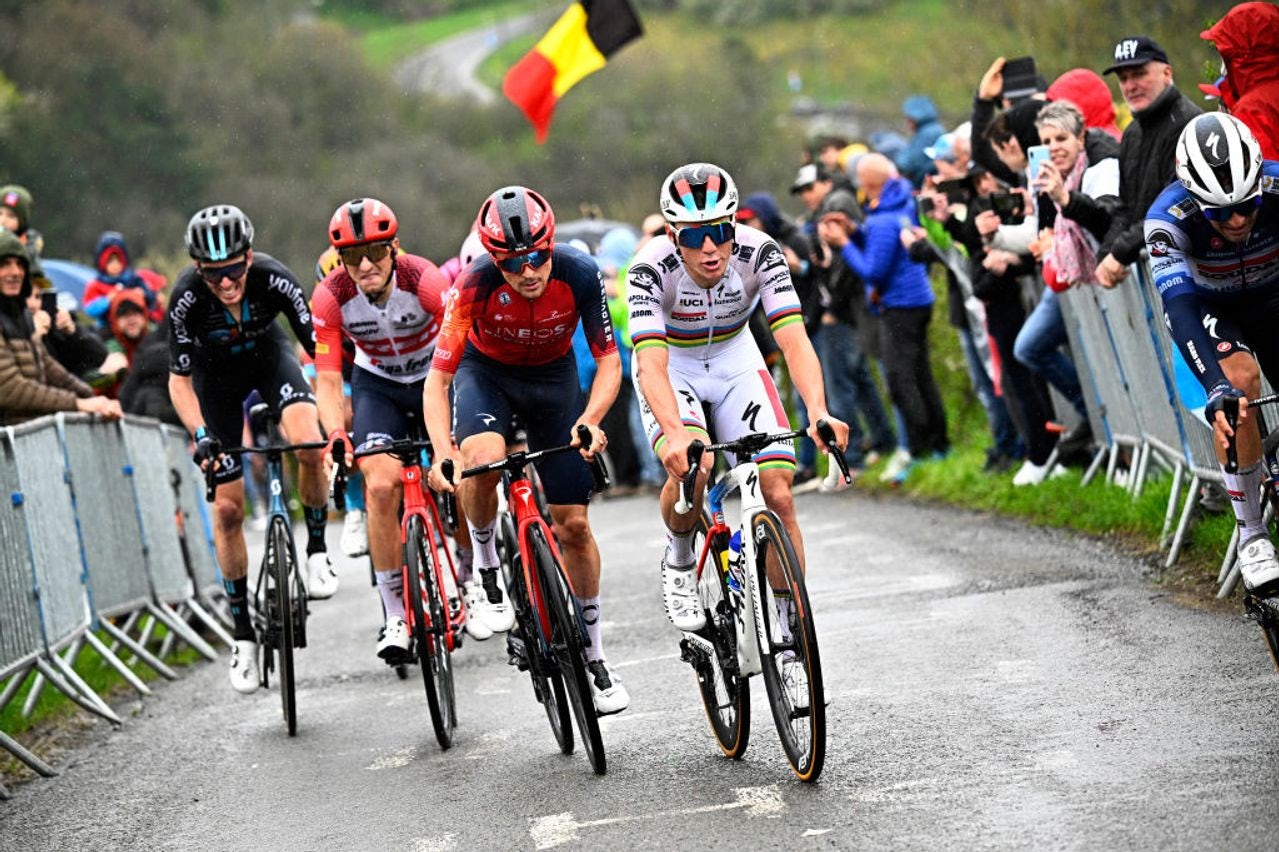





.png?w=600&auto=format)






